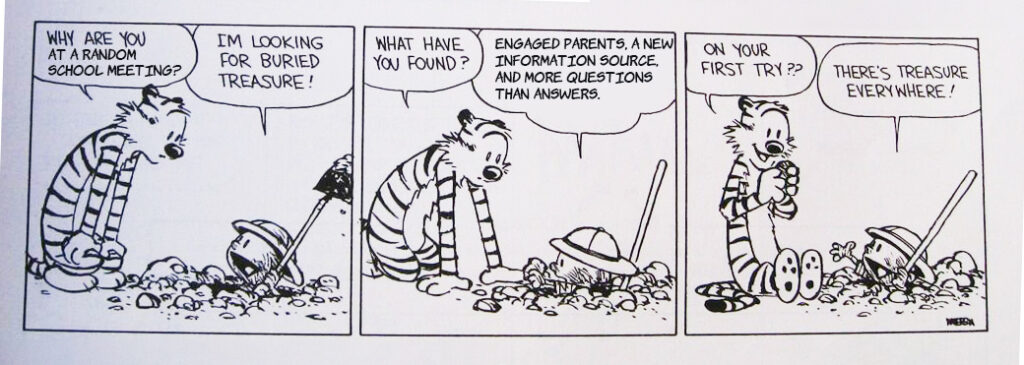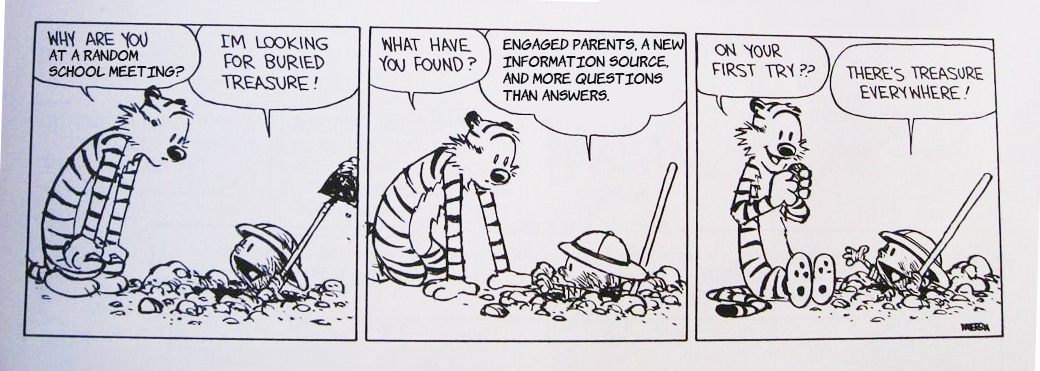I’ll begin, like I do most things in all honesty, with Calvin and Hobbes:
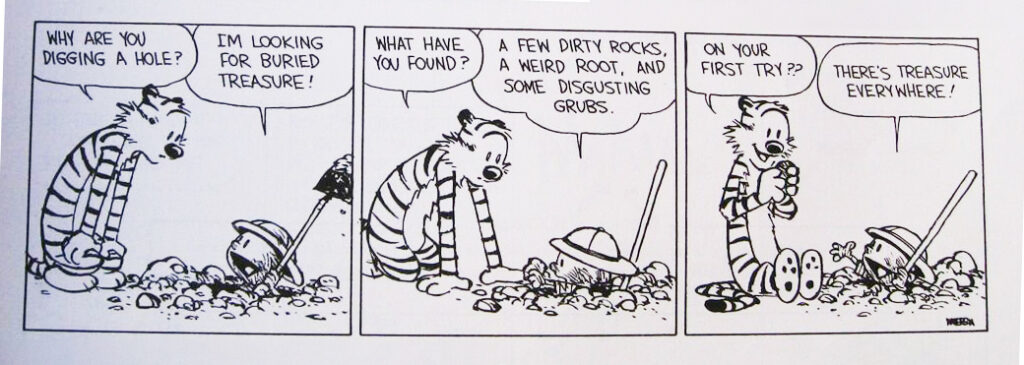
There’s always something to be learned from my favorite comic strip as a child, especially revisiting now as an adult. But why is this specific panel calling to me out of the archives of my self conscious?
I felt like a private eye going under cover to solve a case. My cover story? I’m a parent of brand new kindergartener looking to get more information about my district’s Parent Advisory Council, a term I had just learned three days prior.
The truth? Well, that was the truth. But I also had a secret.
I suspected I might have stumbled upon an under-the-radar intersection of engaged community members, information sharing, and advocacy, one that could help teach us about the ways we can organize ourselves to improve our community. And I was right.
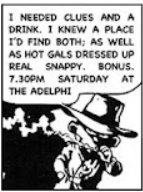
Artists rendering of me at the meeting.
When we think about news and information, we usually think about legacy media: newspapers, tv/cable news. We might also think about social media, though many journalists would be quick to tell you that one doesn’t get news from social media, as everything has an origin somewhere off the apps. In all honesty, that feels less and less true with the prevalence of apps like TikTok that are creator focused and also working hard to keep you on the app through search.
When we share something to our IG story, or repost a TikTok, or re-tweet an x (?), aren’t we becoming a quasi-information source?
The Steinman Institute is interested expanding that side of the conversation, getting our community to think about it to elevate our own personal place in it. If we can do that, we can better understand things like what are the informal places, people, and entities that we not only seek to find information, but take that next step to share that information with our networks?
It sounds wonky, but it happens every single day, and it can have real life impact on communities. And I saw it happen in real time at the Parent Advisory Council.

“We just got our socials pages up and running!” said Jenna excitedly, to a round of soft applause of the 25 or so people in the school cafeteria where the PAC meeting was taking place. Jenna was the head of one of the elementary school’s School Community Organization, or SCO (there are far too many acronyms).
I quickly whipped out my phone and found their Facebook page, stifling my instinctive chuckle that they had made a personal profile instead of a page. I scrolled through their feed to see them resharing official district letters that they had received, upcoming events at their school, and more.
I was starting to think that, intentional or not, maybe a personal page was the perfect move. Not only had they created out of thin air a brand new information source, but they individualized it, positioning themselves to be able to interact, comment, and DM with district parents on a more personal level than anything an official page could do.
Add to that the fact that reach of pages is down immensely unless they’re willing to invest in paid advertising and the re-birth of the once-cringe personal page for entity might be the only thing that can cut through the noise.
They had a very low “friend” count. But here I was, in a cafeteria with 25 people for a district-wide event marketed to more than 60,000. Who’s to say what’s a better information source?
In my experience, new info sources, much like any hobby, organization, or club tend to go like this:
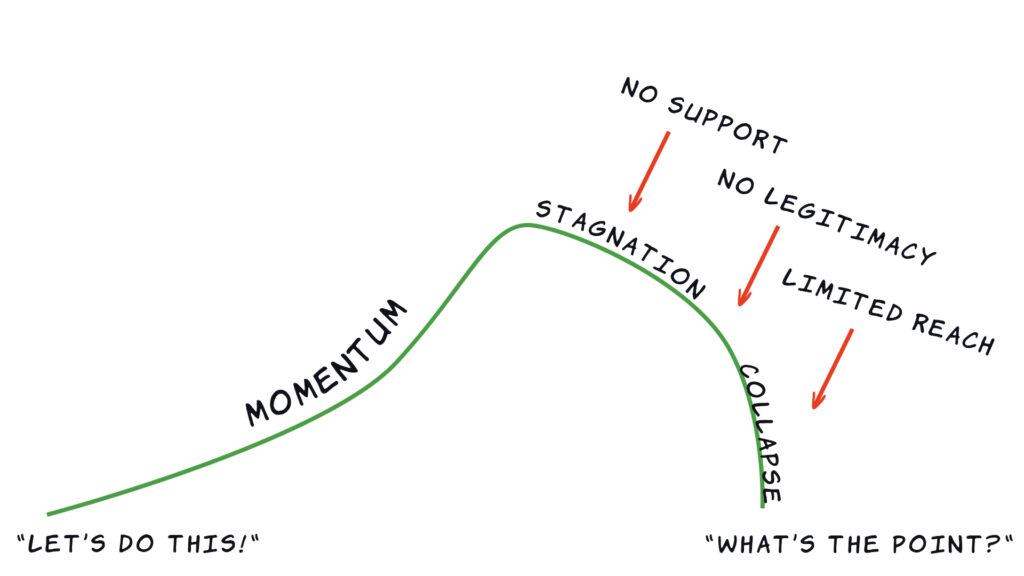
The venture, in this case a plucky little Facebook page for a local SCO, decides to be the voice for their specific group of engaged parents. They share district communiques and flyers for upcoming events for their school. The “they” in question is usually one person, who isn’t getting paid, and who is constantly working to seek out information from sources to share. It’s tireless and thankless, and often falls apart. Why wouldn’t it?
We move from “Let’s do this!” to “What’s the point” in record time without support.
But what if we looked at these operations as valuable assets and invested in them accordingly?
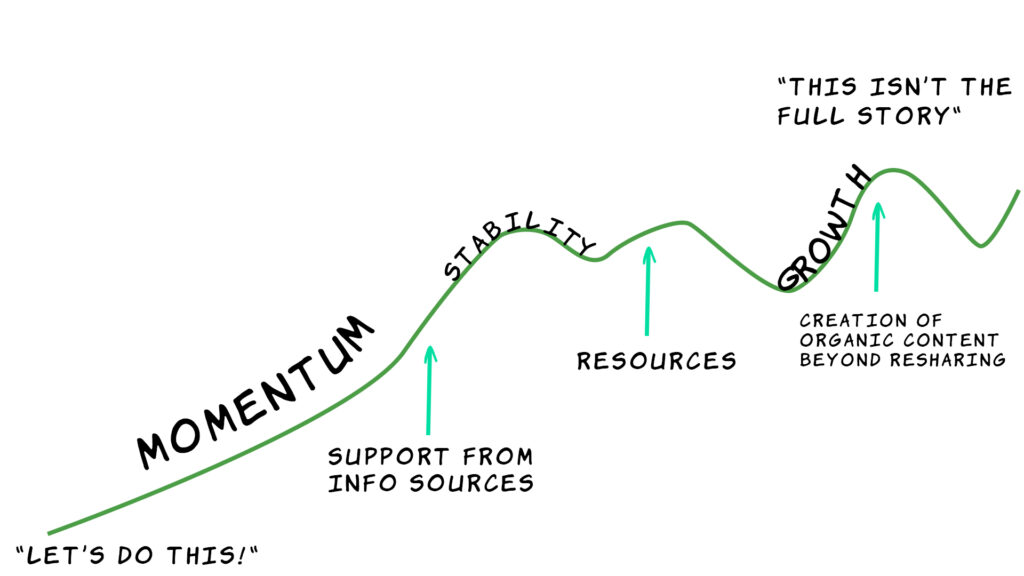
What if instead of relying solely on the dedication of individuals to keep news sources going, the sources (in this case, the School District or even certain local organizations dedicated to news and information), could actively partner with these groups to feed them information, survey their needs (kinds of content, format etc.), and provide resources? It’s a relationship that can be reciprocal. With the right level of nurturing and stability, these new sources of information can begin to create their own content, beyond just resharing District messages: they can ask their audiences what they want, provide feedback or thought leadership on policies being proposed, and more.
That’s how we go from “Let’s do this!” to “That’s not the full story, because we haven’t contributed yet.”
It’s not unlike LNP | LancasterOnline’s Correspondents, which provide updates from every school board and municipal meeting in the county– an unrivaled amount of local coverage to keep residents informed about issues in their own backyard.
How do we pour into community members’ dedication to sharing information in their own unique public spaces collaboratively to help others get engaged?
I left the PAC meeting feeling heartened and also overwhelmed; there was so much potential, but it all felt so tenuous. If I had entered the meeting hoping to solve the case, I couldn’t help but feel I’d found new evidence to take it all in a new direction, with time running out.
A week later, I checked back on the SCO’s Facebook page. A few new posts, some decent engagement, and more importantly, more “friends” than last time. I don’t know what will become of the page or its admins, but for the moment at least I’m glad it’s there, and excited for what could become of it.
If I was able to see all of this happen in just one meeting, in one district, in one city, imagine all that happens all around us every day?
That’s the challenge before us, and the opportunity we have to think more inclusively about news and information in our communities.
Or, to return to Calvin and Hobbes, and to be considerably more concise:
